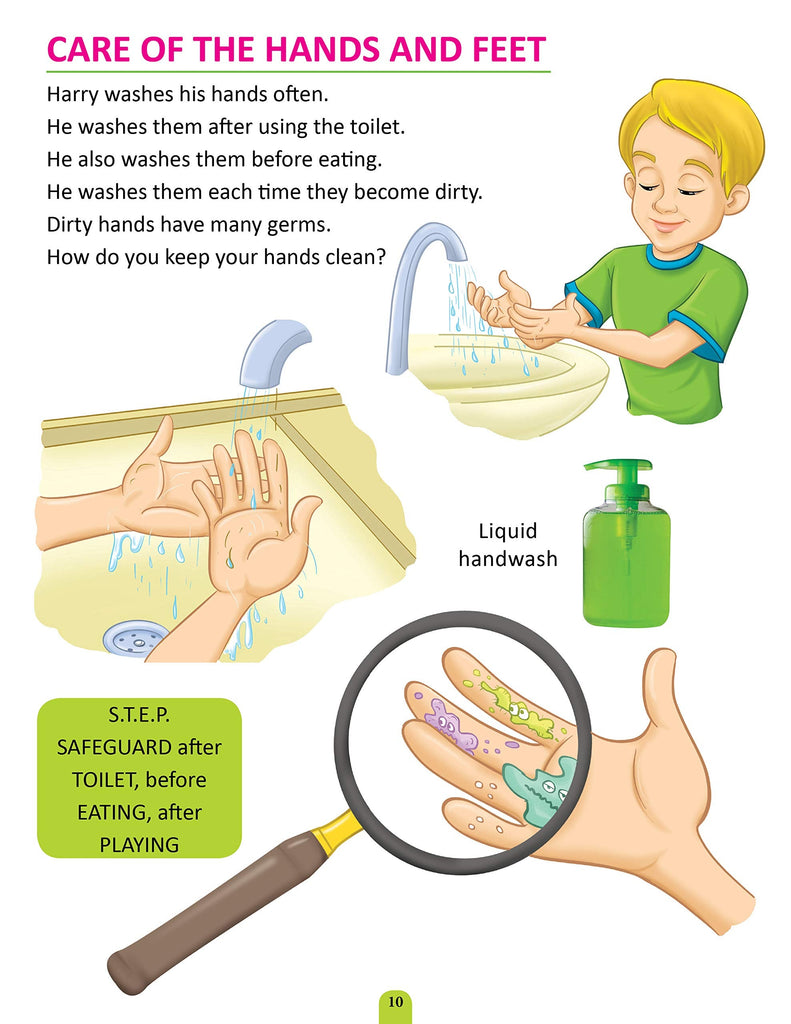
Empowering Kids: Holistic Approach to Health Education
Empowering children with a holistic approach to health education sets the stage for a lifetime of well-being. Nurturing their physical, mental, and emotional health ensures they develop the knowledge and habits necessary for a healthy and fulfilling life.
Physical Health: The Foundation of Well-Being
Children’s health education begins with understanding the importance of physical well-being. Teach kids about the significance of regular exercise, a balanced diet, and proper hygiene. Encouraging active play and sports not only fosters physical health but also instills a love for staying active, laying the foundation for a healthy lifestyle.
Nutrition Awareness: Building Healthy Eating Habits
A crucial aspect of children’s health education revolves around nutrition awareness. Educate kids about the food groups, the importance of fruits and vegetables, and the role of nutrients in growth. Inculcating healthy eating habits from an early age supports proper development and equips children with the knowledge to make nutritious choices.
Mental Health: Fostering Emotional Well-Being
A holistic approach to children’s health education includes a focus on mental health. Teach kids about emotions, coping mechanisms, and the value of expressing feelings. Create a supportive environment where children feel comfortable discussing their emotions. Instilling emotional intelligence from a young age contributes to resilient and emotionally healthy individuals.
Hygiene Practices: Building Clean and Healthy Habits
Hygiene education is fundamental to children’s health. Teach kids proper handwashing, dental care, and personal hygiene practices. Understanding the importance of cleanliness helps prevent the spread of illnesses and establishes habits that contribute to overall health. Make hygiene routines enjoyable and instill a sense of responsibility in children.
Preventive Measures: Shielding Against Illnesses
Children’s health education should emphasize preventive measures to protect against illnesses. Educate them about vaccinations, the importance of regular health check-ups, and strategies to prevent common infections. Empowering children with preventive knowledge fosters a proactive approach to health and well-being.
Safety Education: Navigating Everyday Risks
Safety education is paramount in children’s health. Teach them about road safety, the importance of wearing helmets and seat belts, and how to recognize and respond to emergencies. Equipping children with safety knowledge empowers them to navigate everyday risks with confidence and caution.
Screen Time Management: Balancing Technology Use
In the digital age, managing screen time is a critical aspect of children’s health education. Educate kids about the importance of balance and setting limits on screen use. Encourage outdoor play, reading, and face-to-face interactions to foster a healthy relationship with technology and reduce the potential negative impacts.
Sleep Hygiene: Prioritizing Restful Sleep
Promoting healthy sleep habits is integral to children’s well-being. Educate them about the importance of consistent sleep schedules, creating a bedtime routine, and maintaining a sleep-friendly environment. Quality sleep supports physical and mental development, enhances learning, and contributes to overall health.
Social and Emotional Learning: Nurturing Relationships
Children’s health education should include social and emotional learning (SEL). SEL focuses on developing interpersonal skills, empathy, and positive relationships. Teaching kids how to communicate effectively, resolve conflicts, and build healthy connections fosters emotional well-being and contributes to a supportive community.
Family Involvement: A Collaborative Approach
A holistic approach to children’s health education involves collaboration between parents, educators, and healthcare professionals. Engage families in educational initiatives, workshops, and resources that promote a shared understanding of health. A collaborative approach ensures consistency in health messages and practices at home and school.
To delve deeper into children’s health education, visit Children’s Health Education. Empower the younger generation with the knowledge and habits necessary for a healthy, happy, and fulfilling life.
